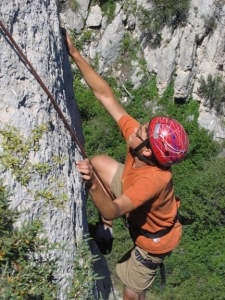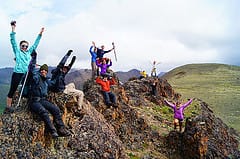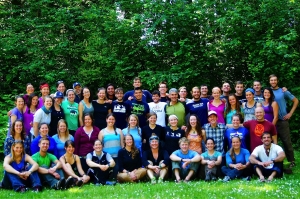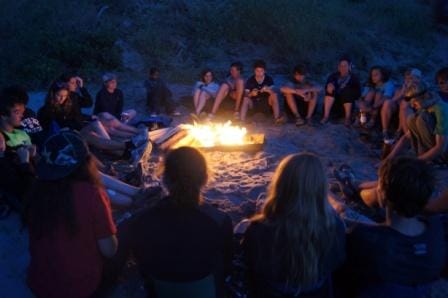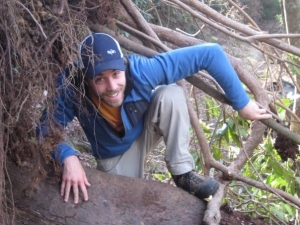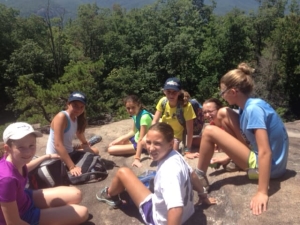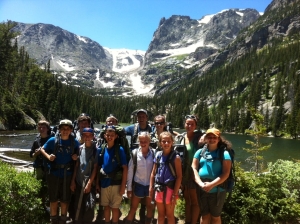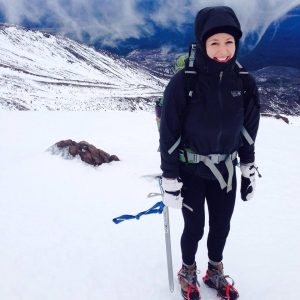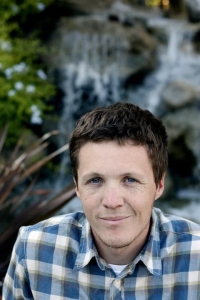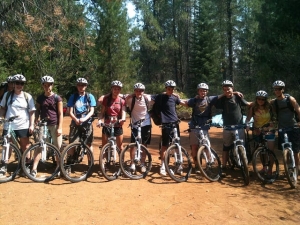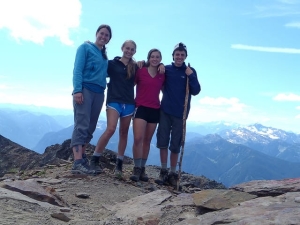Being in the outdoor industry for almost 16 years, a question that I hear time and time again is: “Is Adventure Treks safe?” That’s an impossible question. Really the question should be, “How does Adventure Treks effectively minimize risk while maximizing the growth that can occur on our trips?”
Somehow, we have created an expectation over the last few decades that life is supposed to be safe. But even with social security, insurance, and the Consumer Products Safety Board, we still live in a world where risk is part of daily life. For example, in 2012, 2.3 million toilets had to be recalled due to risk of explosion. (And 14 people were actually injured when their toilets burst!) And while we think nothing about getting in a car (and hopefully won’t text and drive), there are 35,000 fatalities a year in the U.S. alone from driving. And sometimes our safety obsession does more harm than good. As a nation, we have taken playgrounds, made them colorful and plastic and built so much safety into their design that older kids no longer use them. Yet, despite this safety obsession, playground injury rates remain the same as back in the day when playgrounds were fun.
One of the greatest things about taking people into the outdoors is that there is a high degree of perceived risk (which provides wonderful opportunities for growth), while the actual risk is significantly lower. Let’s take a look at the comparison of the activities we do at Adventure Treks versus school sports. While the outdoors may seem dangerous, historically there are 0.52 rock climbing injuries per 1,000 program days. (A program day is one person participating for one day/practice.) Compare this to cheerleading practice, where there are 1.0 injuries per 1,000 days (and this is just practice). Most striking is football: In the U.S., there are 12.09 injuries per 1,000 program days. Thus, you are 24 times more likely to get hurt playing football than you are rock climbing.
At the heart of our safety obsession is an assumption that children are too fragile or unintelligent to assess the risk of any given situation or worse that children cannot be trusted to find their way around tricky physical, social, and emotional situations. And there is some merit to this. Children don’t have a life full of experience. Good decisions tend to come from experience—from practice and from learning from mistakes or better still watching others make bad decisions and learning what not to do.
So our goal at Adventure Treks is not to completely eliminate risk (that’s impossible) but to help students learn to manage risk by modeling conservative risk management decisions. We begin with role models who emphasize being safe. Almost like an apprenticeship, we take the time to teach our students to assess risk and potential outcomes, look at the probability of an accident and potential consequences, and then engage them in the decision-making process. Our goal is to not only bring all of our students home in one piece, but also to give them tools to make better decisions after they return home!
But back to the original thought; is Adventure Treks safe? The answer is not simply yes or no. We have been fortunate in our 20-plus year history to not have had a significant injury. But this is not a guarantee for the future. I had been driving for 17 years without an accident, but in early February 2014, I was hit by another driver. It was not my fault, but in the end, it was still in an accident. We cannot rest on the fact that we have been fortunate, as something could happen anywhere, to anyone, doing anything. (Even sitting on the toilet.)
The key to effectively managing risk is to have an excellent team of instructors, train them well, and have an organizational culture that emphasizes and models safety. It’s also about getting our students to “buy” into our culture of safety. Our instructors come to us with years of experience working in the outdoors, and we are fortunate to have the highest staff retention rate in our field. By being excellent role models, they are able to transmit our values of acceptable and reasonable risk. By devoting ourselves to hiring an incredible team of instructors with an average age of 27 (with more developed brains than the 21-year-olds that many other programs hire) and by spending two full weeks in orientation before our students arrive, we are investing in the good and wise decision-making which increases the probability of a successful experience.
I’m excited to meet your child this summer,
Dave “Dmac” McGlashan
Adventure Treks director
Sources:
http://www.jrn.com/tmj4/news/A-nationwide-recall-says-your-toilet-may-be-dangerous-218148721.html
http://www.csmonitor.com/Business/In-Gear/2014/0215/Estimated-35-200-US-traffic-deaths-reported-in-2013
http://www.theatlantic.com/features/archive/2014/03/hey-parents-leave-those-kids-alone/358631/
http://www.nols.edu/nolspro/pdf/wrmc/AdvocatingforRiskinaRiskAverseWorld-ChristopherBarnes.pdf

